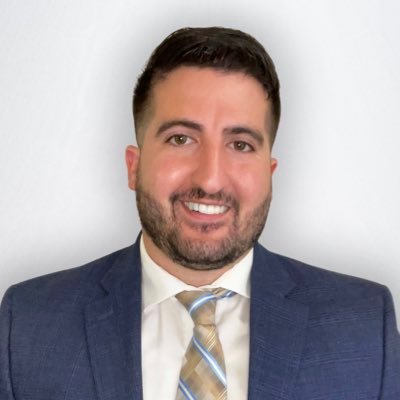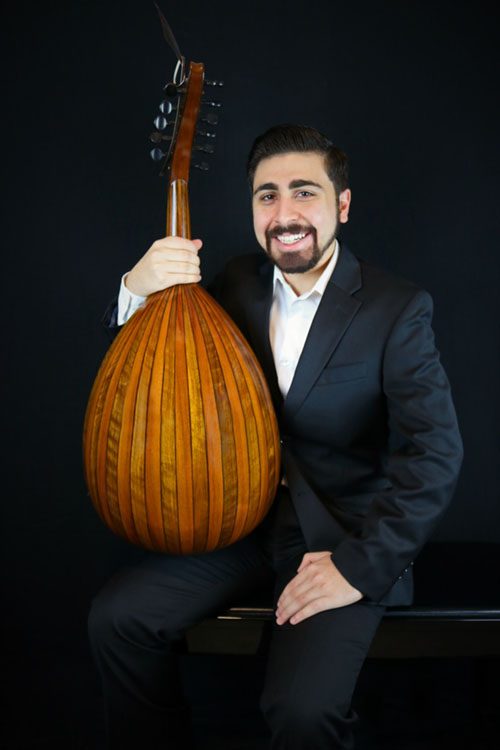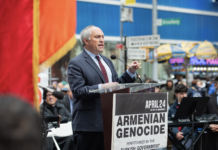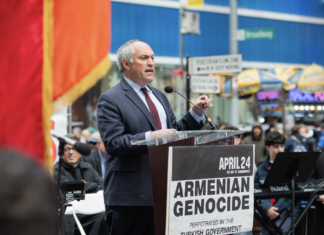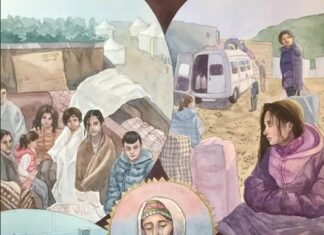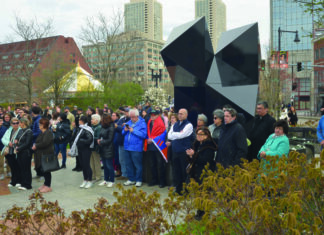FRESNO — We often hear that music is good for one’s mental health. However we rarely hear this discussed by musicians within the Armenian community. For this reason, the conversation on Instagram Live that took place on the evening of Thursday, February 25, between Dr. Tony Saroyan, a licensed psychologist, and Andrew Hagopian, a young oud virtuoso, was a welcome and novel addition to the stream of online discussions that have only proliferated since the start of Covid.
Saroyan, who grew up in Los Angeles but whose roots on his father’s side come from the Fresno Saroyans, and who has recently relocated to the Central California city, enlisted the young lifelong Fresno resident Hagopian in an interesting discussion on music and mental health.
Saroyan started out the discussion with the observation that Armenian Church music, while often sad, possesses a quality that seems calming and spiritual. Without a music background, he commented that the music is often comprised of long notes and asked Hagopian if he could elaborate. Hagopian discussed that church music contains drones and what we in the West would call minor notes, and that it is indeed calming for many and was probably intended to be that way.
In fact, Hagopian, who is almost as well versed in Armenian history as he is in music, discussed some of the Armenian antecedents of what today is called music therapy. For example, medieval Armenian physician Mkhitar Heratsi in his book The Relief of Fevers (1184) had suggested that listening to the music of the gusans (minstrels who usually played a stringed instrument and sang) was therapeutic. Instruments like the oud and kanon while not native to Armenia have been a part of Armenian music for more than a thousand years.
Saroyan brought up the phenomenon that has been observed in Alzheimer’s patients, that when presented with music from their youth, they begin to liven up and even remember exact details from when they first heard the song. Hagopian testified that he has literally seen the same thing happen when performing at Armenian events. A particular song that was familiar to a woman with Alzheimer’s caused the elderly lady to move around and even dance, apparently remembering the classic piece from the Armenian events of her youth.
Turkish Music Controversial



